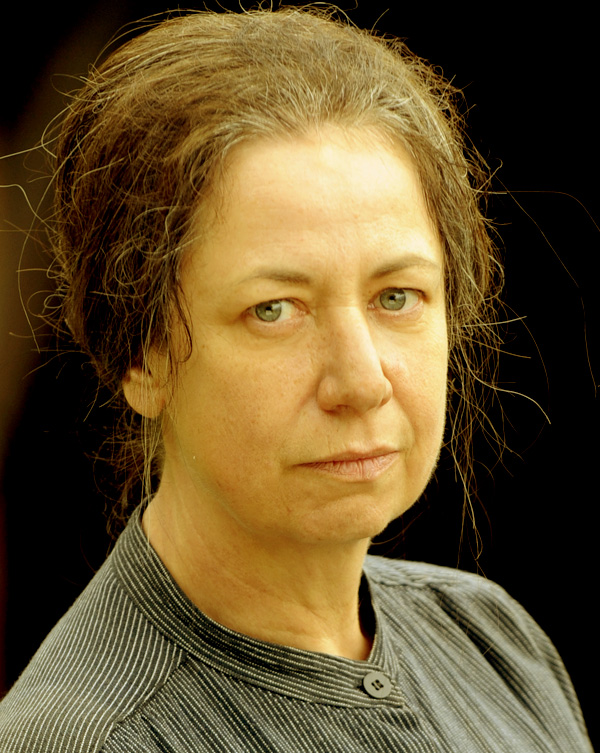Where is Elisabeth Fritzl? This question has haunted many since the shocking revelations of her life in captivity came to light. The story of Elisabeth Fritzl is one of hope, survival, and resilience, yet it remains shrouded in unanswered questions. In this article, we will delve into the life of Elisabeth Fritzl, exploring her past, the events leading up to her captivity, and her current situation. We aim to provide a comprehensive overview that not only informs but also respects the sensitive nature of her story.
The tale begins in Austria, where Elisabeth was born into a family that would become infamous. As we uncover the details of her life, we will address the psychological and social implications of her ordeal. Furthermore, we will discuss her journey to recovery and the ongoing impact of her experience on her life today. The aim is to present an accurate and respectful account that honors her resilience and strength.
Elisabeth Fritzl's story is not just a tale of victimization; it is also one of survival against unimaginable odds. By understanding her past and the circumstances that led to her captivity, we can better appreciate the complexities of her journey. Join us as we explore the question: Where is Elisabeth Fritzl, and what has become of her since her harrowing escape?
Table of Contents
- Biography of Elisabeth Fritzl
- Early Life of Elisabeth Fritzl
- The Captivity of Elisabeth Fritzl
- Escape and Discovery
- Life After Escape
- Current Situation of Elisabeth Fritzl
- Psychological Impact of Her Ordeal
- Media Coverage and Public Reaction
Biography of Elisabeth Fritzl
Elisabeth Fritzl was born on April 18, 1966, in Amstetten, Austria. She was the second of three children born to Josef Fritzl and Rosemarie Fritzl. The family dynamics were complicated, with Elisabeth's father, Josef, exhibiting controlling and abusive behavior.
| Date of Birth | April 18, 1966 |
|---|---|
| Place of Birth | Amstetten, Austria |
| Parents | Josef Fritzl, Rosemarie Fritzl |
| Notable Events | Captivity from 1984 to 2008 |
Early Life of Elisabeth Fritzl
Elisabeth's childhood was marked by challenges. Her father was known for his strict and abusive parenting style, which created a tense home environment. This context played a significant role in shaping her life and the events that unfolded later.
The Captivity of Elisabeth Fritzl
The dark chapter of Elisabeth's life began in 1984 when she was just 18 years old. Her father, Josef, lured her into the basement of their home, where he imprisoned her for 24 years. During this time, Elisabeth endured horrific abuse and gave birth to seven children, three of whom were raised in captivity alongside her in the basement.
Conditions of Captivity
- Isolation from the outside world
- Lack of medical care
- Psychological manipulation and control
Escape and Discovery
Elisabeth's escape in 2008 was a turning point in her life. With the help of her oldest daughter, she managed to break free from her father's grip. This escape led to a police investigation that uncovered the full extent of Josef Fritzl's crimes.
Life After Escape
After her escape, Elisabeth faced the daunting task of rebuilding her life. She received support from mental health professionals and gradually began to heal from her traumatic experiences. Her story became a symbol of resilience and strength.
Current Situation of Elisabeth Fritzl
Today, Elisabeth Fritzl lives a life away from the public eye. She has made efforts to maintain her privacy and the well-being of her children. Reports indicate that she has found solace in her new life, although the scars of her past remain.
Psychological Impact of Her Ordeal
The psychological impact of Elisabeth's captivity is profound. Survivors of such trauma often experience a range of emotions, including PTSD, anxiety, and depression. Elisabeth's journey highlights the importance of mental health support for survivors.
Media Coverage and Public Reaction
The media coverage surrounding Elisabeth's story was intense. Public reaction ranged from shock to empathy, with many advocating for stronger protections for victims of abuse. Elisabeth's story has sparked conversations about the importance of mental health resources and support systems for survivors.
Conclusion
In conclusion, the question where is Elisabeth Fritzl? encompasses not only her physical location but also her journey toward healing and recovery. Her story serves as a powerful reminder of the strength of the human spirit and the importance of support systems for survivors. We encourage readers to reflect on the impact of such narratives and to advocate for awareness and protection for victims of abuse.
We invite you to share your thoughts in the comments below, and if you found this article insightful, consider sharing it with others who may benefit from understanding Elisabeth Fritzl's story.
Closing Remarks
Thank you for joining us in exploring the life of Elisabeth Fritzl. We hope this article has provided valuable insights and encouraged you to return for more stories that matter. Your engagement is important, and we look forward to sharing more with you in the future.




